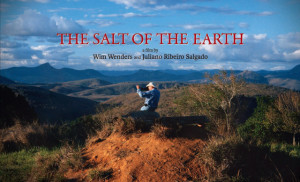The Salt of the Earth
Touching, invasive, shocking.
It sounds like a resounding slap in the face of your conscience, of your sensitivity.
A man, only a man, a lonely man who reveals the universe describing what he sees, how he sees it.
Sometime ago, I wrote these words in a post: “you can tell thousands of stories, but how many things does the world know only thanks to photography?” …but at that time, I was not yet absorbed by Salgado’s universe.
This afternoon, I have watched this film alone. I have walked towards the cinema wondering what I expected, what I would like to see.. but the answer is that I could scarcely have imagined it.
A dear friend of mine has given me one of his books: I couldn’t look at the photos without touching them, I don’t know why: they were so physical, so strong, so impetuous that they seemed not to be pictures, not to be paper.
“The Salt of the Earth” is shocking because nothing is spared by Salgado’s inclement look, the universe is sifted through, and humanity is often condemned.
There is a striking symbiosis between him and the Earth, at the point that he seems to be one of its elements, he does not disturb it, he is not an alien entity to it: he is part of it.
He moves as if he had roots and, at the same time, as if he had the freedom given by wings, he seems he has been there for so long that he appears not involved in the daily life at home or with his family, he is far from the habitat he should belong to.
Maybe it is nearly offensive to call it photography: it is a cathartic journey into the centre of the Earth, where humanity has never arrived, at least not in this way, not with this strength, going through.
He says he has always wanted humanity to see, to understand, not to ignore; he wanted it strongly and desperately: this cannot be simply a photographer’s motivation, it is a mission, a natural instinct.
He says that suddenly he became ill; it was not a viral disease, it was a disease of his soul.. The project Genesis was born for this reason: the Earth has healed him, and he has made humanity aware of it.
Talking to us about the other part of the world, Salgado talks about ourselves, about what we do, what we know and what we do ignore.
Some people’s actions become the reason for someone else’s damnation.
They don’t know about each other.
Or maybe not?
Salgado shows the Earth as the stage of a one-act play in which there are no extras, but only leading roles: lucky and unlucky people, together with nature. They are all involved in a very delicate play of weak balances with no boundary lines, and he carves out some moments of absolute perfection and hard truth.
“He cared about human beings, after all they are the salt of the Earth for him.”
Translation by Angela Caporale, mail angelacaporale.ac@gmail.com
